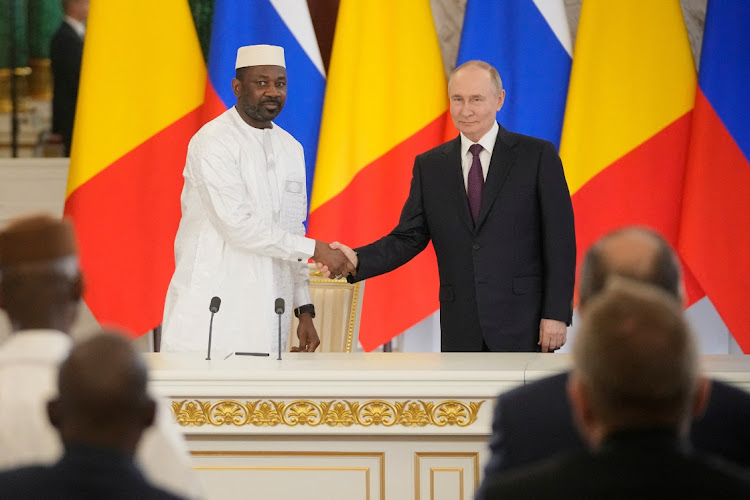Mali and Russia have officially signed a series of agreements aimed at enhancing bilateral trade and economic collaboration, with a particular focus on the energy sector.
A major highlight of the agreements is the planned cooperation in nuclear energy, as revealed by the Kremlin. These developments followed Malian military leader Col Assimi Goïta’s recent state visit to Moscow, where he engaged in a two-hour meeting with Russian President Vladimir Putin.
Since coming to power in 2021, Col Goïta has redirected Mali’s international alliances toward Russia, gradually moving away from the country’s traditional relationship with France. This diplomatic realignment aligns with similar moves by neighboring countries like Burkina Faso and Niger, both now led by military governments with pro-Russian stances.
During Monday’s remarks, President Putin acknowledged that while current trade volumes between Russia and Mali remain modest, there has been notable progress. He highlighted mutual interests in areas such as geological exploration, energy development, logistics, and humanitarian aid.
One of the long-term goals under discussion includes the construction of a Russian-modeled nuclear power plant in Mali, signaling a significant step in the West African nation’s pursuit of energy independence.
Col Goïta described the visit as a milestone for Mali-Russia relations, emphasizing mutual trust and respect for sovereignty. He expressed appreciation for Russia’s hospitality and reaffirmed Mali’s commitment to deepening cooperation across multiple sectors.
Military collaboration continues to be a cornerstone of the partnership. Following the withdrawal of French and UN peacekeeping forces, Russian paramilitary support has bolstered Goïta’s administration. Although the Wagner Group has since exited the region, another unit, known as the Africa Corps, remains active in Mali.
Despite the military government’s justification for the 2021 takeover—citing worsening insecurity—violence has persisted, raising concerns over the effectiveness of current security strategies.
In a separate meeting, Russian Defence Minister Andrei Belousov told Malian Defence Minister Sadio Camara that their collaboration aims to deliver tangible improvements in national security and sovereignty. “This approach is the key to any success and victory,” Belousov stated.
These new agreements underscore a deepening alliance that touches on trade, energy, military, and diplomatic relations, positioning Russia as a central player in Mali’s evolving geopolitical strategy.

